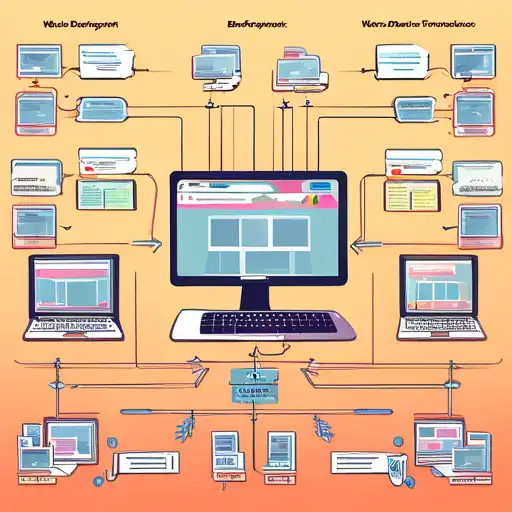Understanding Web Development Frameworks
In the ever-evolving world of web development, choosing the right framework can be a daunting task. With a plethora of options available, each promising to be the best, how do you decide which one is right for your project? This guide aims to demystify the process, helping you navigate through the maze of web development frameworks to make an informed decision.
What Are Web Development Frameworks?
Web development frameworks are platforms designed to support the development of web applications, including web services, web resources, and web APIs. They provide a standard way to build and deploy web applications on the World Wide Web. Frameworks can significantly reduce the time and effort required to develop a web application by providing pre-written code for common operations.
Types of Web Development Frameworks
Web development frameworks can be broadly categorized into two types: frontend (client-side) and backend (server-side). Frontend frameworks, such as React, Angular, and Vue.js, focus on the user interface and user experience. Backend frameworks, like Django, Ruby on Rails, and Express.js, handle the server-side logic, database interactions, and application integration.
Choosing the Right Framework
Selecting the right framework depends on several factors, including the project requirements, team expertise, and long-term maintenance considerations. Below are some key points to consider:
- Project Requirements: The nature and scope of your project will largely dictate the choice of framework. For instance, a single-page application (SPA) might benefit from a frontend framework like React or Vue.js.
- Team Expertise: The familiarity of your development team with a particular framework can significantly impact the project's timeline and success.
- Community and Support: A strong community and good documentation can be invaluable resources when facing development challenges.
- Scalability: Consider whether the framework can handle the growth of your application in terms of users and functionality.
Popular Web Development Frameworks in 2023
Here’s a look at some of the most popular web development frameworks this year:
- React: A JavaScript library for building user interfaces, maintained by Facebook.
- Angular: A platform and framework for building single-page client applications using HTML and TypeScript.
- Vue.js: An approachable, performant, and versatile framework for building web user interfaces.
- Django: A high-level Python web framework that encourages rapid development and clean, pragmatic design.
- Ruby on Rails: A server-side web application framework written in Ruby under the MIT License.
Conclusion
Choosing the right web development framework is crucial for the success of your project. By considering the project requirements, team expertise, and other factors mentioned above, you can select a framework that not only meets your current needs but also supports future growth. Remember, the best framework is the one that aligns with your project goals and team capabilities.
